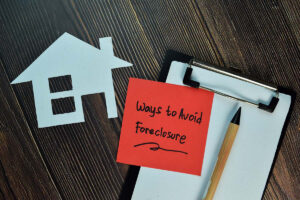Bankruptcy Can Be Expensive
While bankruptcy offers a way to eliminate or restructure debts, it can also come with significant expenses that add to the financial burden of those seeking relief.
The cost of filing for bankruptcy can vary depending on the type of bankruptcy, the complexity of the case, and the legal representation sought. In addition to court fees and administrative costs, hiring a bankruptcy attorney to navigate the complex legal processes and paperwork can be a substantial expense. For businesses, the cost of bankruptcy can include hiring financial advisors and restructuring consultants to develop a plan for reorganizing the company’s finances.
There are ongoing costs associated with bankruptcy, such as credit counseling and debtor education courses, as well as potential expenses related to litigation if creditors challenge the discharge of debts or the reorganization plan.
Federal Student Loans are Exempt From Bankruptcy
Unlike other types of debt, federal student loans are exempt from bankruptcy protection. This means that even if a borrower is facing extreme financial hardship, they cannot discharge their student loan debt through bankruptcy proceedings. [1]
The reasoning behind this exemption lies in the belief that providing a way to discharge student loan debt through bankruptcy would create a moral hazard, encouraging borrowers to take on large amounts of debt with the intention of having it erased through bankruptcy.
The government guarantees federal student loans, so allowing borrowers to discharge this debt through bankruptcy would ultimately place the burden on taxpayers.
While federal student loans are exempt from bankruptcy, there are still options available to borrowers who are struggling to make their loan payments. Income-driven repayment plans, loan forgiveness programs, and deferment or forbearance options can provide some relief for borrowers facing financial hardship.
Borrowers can also explore options for refinancing or consolidating their student loans to potentially lower their monthly payments.

Your Bankruptcy Will be Made Public
When you file for bankruptcy, a public record of your filing is created. This record includes information such as your name, address, and the type of bankruptcy you filed for. It also includes a list of your creditors, the amount of debt you owe, and any assets you own.
This public record can be accessed by anyone who wants to do a background check on you. This means that potential employers, landlords, and lenders may be able to see that you have filed for bankruptcy. While this may not always disqualify you from a job, rental agreement, or loan, it can certainly make it more difficult to secure these opportunities.
While your bankruptcy will be made public, there are laws in place to protect your privacy to some extent. Credit reporting agencies are only allowed to report a bankruptcy on your credit report for a certain period of time, depending on the type of bankruptcy you filed for.
There are restrictions on who can access your bankruptcy record. Generally, only those with a legitimate reason for accessing the record, such as a potential employer or lender, will be able to do so.
Bankruptcy Destroys Your Credit
Filing for bankruptcy immediately takes a toll on your credit score, often causing it to plummet by more than 200 points. This significant drop can make it incredibly difficult to secure new credit in the future, whether it be a loan, credit card, or mortgage. Lenders are typically hesitant to extend credit to individuals who have a bankruptcy on their record, as they view them as high-risk borrowers.
Even if you are able to obtain credit after bankruptcy, the terms and interest rates are likely to be less favorable than they would be for someone with a pristine credit history. This can translate to higher borrowing costs and added financial strain, making it even harder to rebuild your financial standing.
A bankruptcy filing can stay on your credit report for up to 10 years, making it a long-lasting scar on your financial record. This can affect your ability to secure housing, and employment, and even impact insurance premiums.

Your Property Might be Repossessed
The prospect of having your property repossessed can be incredibly distressing, as it means losing the place that you have worked so hard to call home. Whether it’s a house, a car, or any other valuable asset, the threat of repossession can have a significant impact on your emotional well-being and financial stability.
To avoid repossession, take proactive steps to address your financial issues. This may involve reaching out to your lender or financial institution to discuss alternative payment options or restructuring your loan. Be transparent about your situation and communicate openly with your creditors to find a solution that works for both parties.
Seeking professional financial advice can also be instrumental in managing your debt and avoiding repossession. A financial advisor can help you create a realistic budget, explore debt consolidation options, and negotiate with your creditors on your behalf.
If you find yourself unable to prevent repossession, familiarize yourself with the legal process and your rights as a property owner. Understanding your rights can empower you to make informed decisions and navigate the repossession process with greater confidence.
Purchasing a Home After Bankruptcy is Difficult
Purchasing a home after bankruptcy can be a difficult and daunting task. Lenders are often hesitant to extend credit to individuals with bankruptcy on their record, as they may see them as high-risk borrowers.
Individuals may experience a significant drop in their credit score, which can make it challenging to qualify for a mortgage. Bankruptcy remains on a credit report for several years, making it difficult for individuals to rebuild their credit and demonstrate financial responsibility to potential lenders.
Individuals who have filed for bankruptcy may also face other challenges when purchasing a home, such as higher interest rates and larger down payment requirements. Lenders may require a larger down payment to minimize their risk when lending to individuals with bankruptcy on their record.
Higher interest rates can also increase the overall cost of purchasing a home, making it more financially burdensome for individuals who have already faced financial challenges.
Some lenders may be willing to work with individuals who have a bankruptcy on their record, particularly if they can demonstrate that they have taken steps to rebuild their credit and improve their financial standing. This may include making timely payments on other debts, saving for a larger down payment, and providing a detailed explanation of the circumstances that led to the bankruptcy.

Impact On Others you Have Accounts With or Co-Signers
If you have joint accounts with a spouse, family member, or business partner, your financial decisions can directly affect them. If you overspend or default on a loan, it could harm your credit score and financial standing. Communicate openly and honestly with your joint account holders about your financial decisions and work together to set and meet shared financial goals.
If you have a co-signer on a loan or credit card, your actions can affect your credit score and financial stability. If you miss a payment or default on the debt, it can damage your credit and make it more difficult for you to secure future loans or credit. Keep your co-signer informed about your financial situation and make every effort to fulfill your financial obligations.
Are you overwhelmed by debt and considering filing for bankruptcy?
Contact Frego Law today for a consultation regarding filing for bankruptcy and take the first step towards financial peace of mind.
Source:
[1] Push, A., & Linton, A. (2023, October 18). Pros and Cons of Filing Bankruptcy. LendingTree. https://www.lendingtree.com/bankruptcy/pros-and-cons-of-filing-for-bankruptcy/




